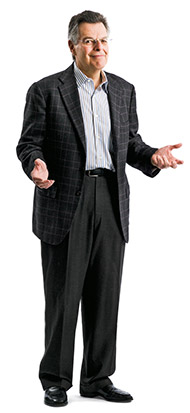
Myron Scholes. Source of photo: online version of the NYT article quoted and cited below.
(p. 22) The writer Nassim Nicholas Taleb contends that instead of giving advice on managing risk, you “should be in a retirement home doing sudoku.”
If someone says to you, “Go to an old-folks’ home,” that’s kind of ridiculous, because a lot of old people are doing terrific things for society. I never tried sudoku. Maybe he spends his time doing sudoku.Some economists believe that mathematical models like yours lulled banks into a false sense of security, and I am wondering if you have revised your ideas as a consequence.
I haven’t changed my ideas. A bank needs models to measure risk. The problem, however, is that any one bank can measure its risk, but it also has to know what the risk taken by other banks in the system happens to be at any particular moment.
. . .
After leaving academia, you helped found Long-Term Capital Management, a hedge fund that lost $4 billion in four months and became a symbol of ’90s-style financial failure. .
Obviously, you prefer not to have lost money for investors.
For the full interview, see:
DEBORAH SOLOMON. “Questions for Myron Scholes; Crash Course.” The New York Times, Magazine Section (Sun., May 17, 2009): 22.
(Note: ellipsis added; bold in original versions, to indicate questions by Deborah Solomon.)
(Note: the online version of the article is dated May 14, 2009.)
